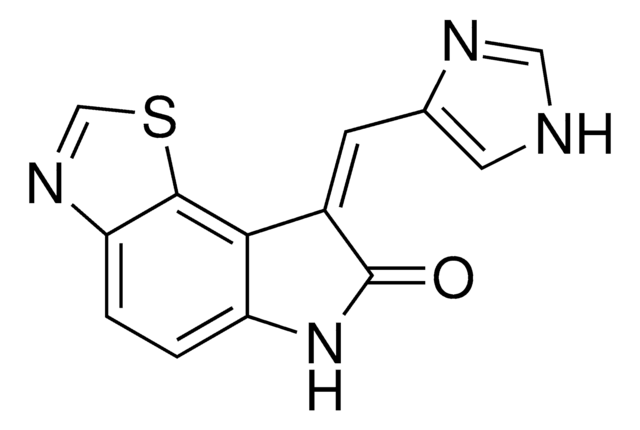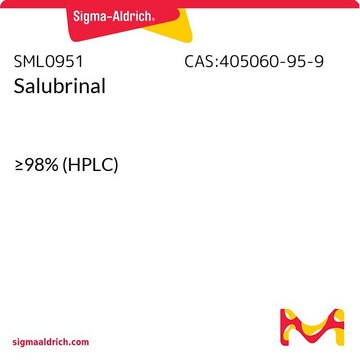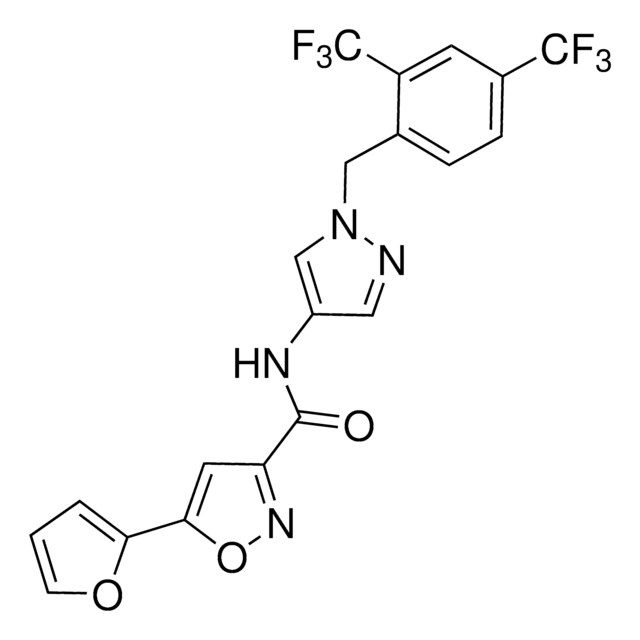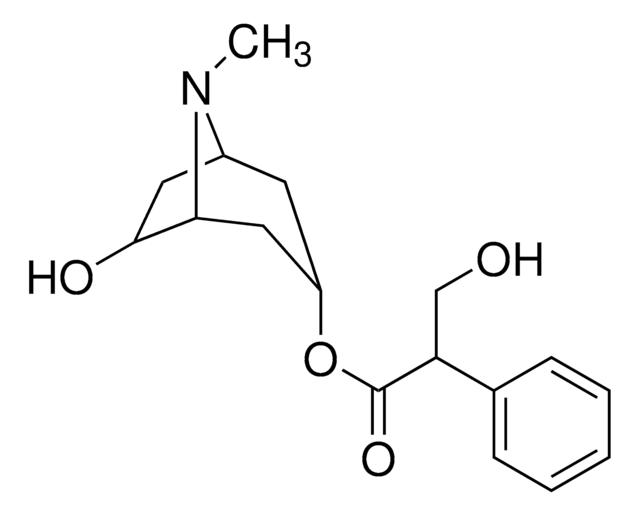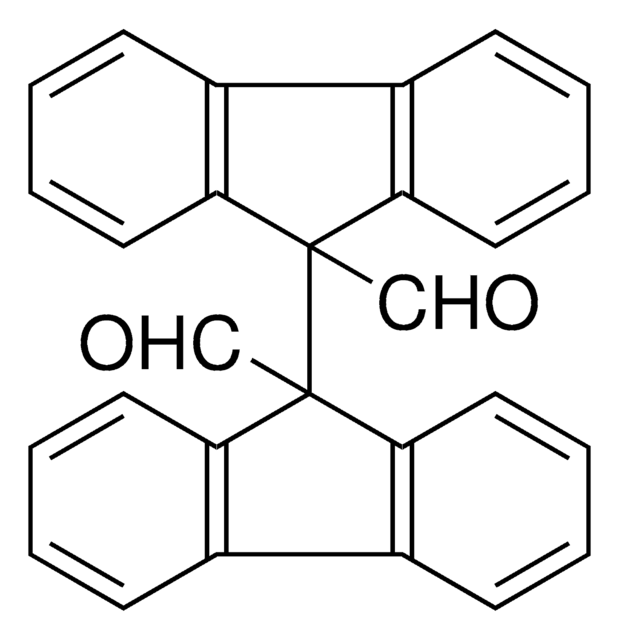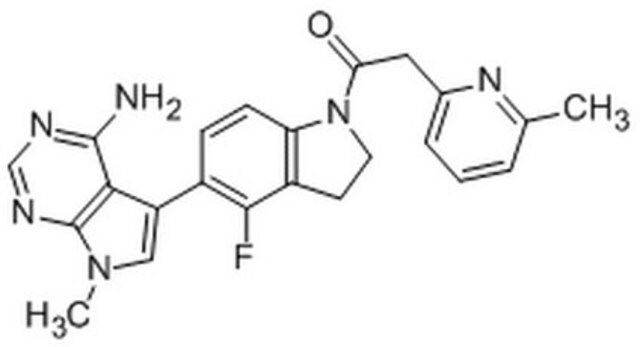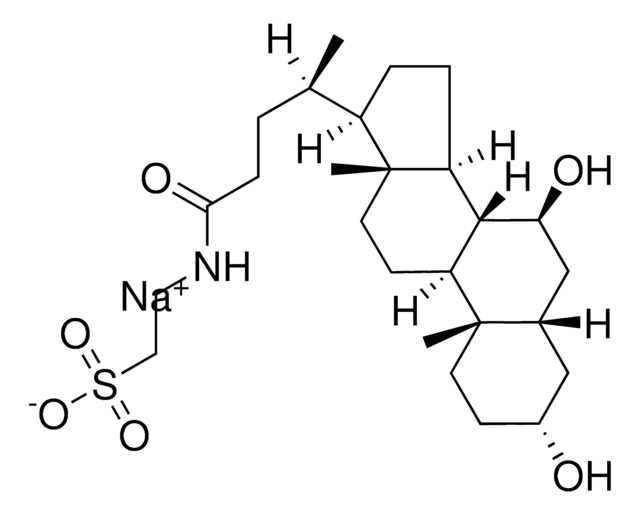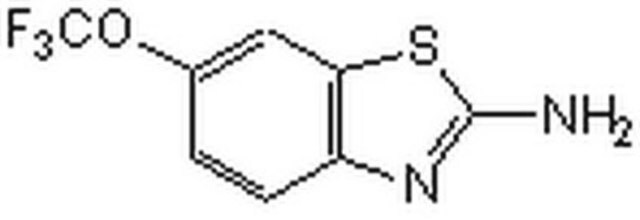SML0843
ISRIB
≥98% (HPLC), powder, integrated stress response inhibitor
Sinónimos:
Integrated Stress Response inhibitor, trans-N,N′-(Cyclohexane-1,4-diyl)bis(2-(4-chlorophenoxy)acetamide, trans-N,N′-1,4-Cyclohexanediylbis[2-(4-chlorophenoxy)-acetamide
About This Item
Productos recomendados
product name
ISRIB, ≥98% (HPLC)
Nivel de calidad
Análisis
≥98% (HPLC)
formulario
powder
color
white to beige
solubilidad
DMSO: 1 mg/mL, clear (warmed)
temp. de almacenamiento
2-8°C
cadena SMILES
ClC1=CC=C(OCC(N[C@@H]2CC[C@@H](NC(COC3=CC=C(Cl)C=C3)=O)CC2)=O)C=C1
InChI
1S/C22H24Cl2N2O4/c23-15-1-9-19(10-2-15)29-13-21(27)25-17-5-7-18(8-6-17)26-22(28)14-30-20-11-3-16(24)4-12-20/h1-4,9-12,17-18H,5-8,13-14H2,(H,25,27)(H,26,28)/t17-,18-
Clave InChI
HJGMCDHQPXTGAV-IYARVYRRSA-N
Aplicación
Acciones bioquímicas o fisiológicas
Código de clase de almacenamiento
11 - Combustible Solids
Clase de riesgo para el agua (WGK)
WGK 3
Punto de inflamabilidad (°F)
Not applicable
Punto de inflamabilidad (°C)
Not applicable
Certificados de análisis (COA)
Busque Certificados de análisis (COA) introduciendo el número de lote del producto. Los números de lote se encuentran en la etiqueta del producto después de las palabras «Lot» o «Batch»
¿Ya tiene este producto?
Encuentre la documentación para los productos que ha comprado recientemente en la Biblioteca de documentos.
Los clientes también vieron
Nuestro equipo de científicos tiene experiencia en todas las áreas de investigación: Ciencias de la vida, Ciencia de los materiales, Síntesis química, Cromatografía, Analítica y muchas otras.
Póngase en contacto con el Servicio técnico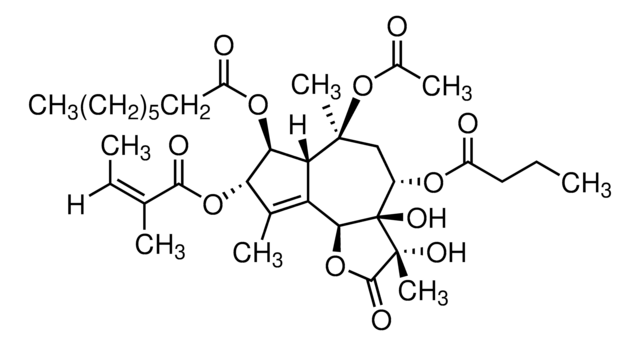
![PERK Inhibitor I, GSK2606414 GSK2606414 is a cell-permeable, highly potent inhibitor of EIF2AK3/PERK (IC₅₀ = 0.4 nM; [ATP] = 5 µM). Targets PERK in its inactive DFG conformation at the ATP-binding region.](/deepweb/assets/sigmaaldrich/product/structures/180/559/efa716dc-d5fe-4339-a6f0-0103084fc04a/640/efa716dc-d5fe-4339-a6f0-0103084fc04a.png)
